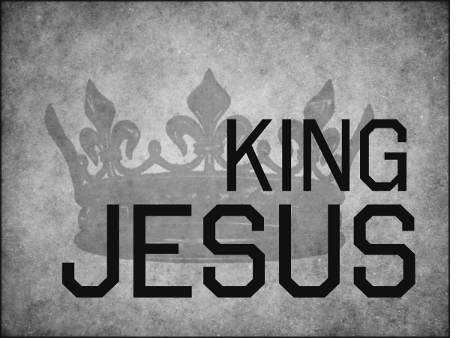The Deity of Jesus the Christ
© 05.02.18 D. Eric Williams
 Jesus performed many other signs in the presence of his disciples that are not written in this book. But these are written so that you may believe that Jesus is the Messiah, the Son of God, and that by believing you may have life in his name (John 20:30-31).1
Jesus performed many other signs in the presence of his disciples that are not written in this book. But these are written so that you may believe that Jesus is the Messiah, the Son of God, and that by believing you may have life in his name (John 20:30-31).1
Just prior to these last two verses in John chapter 20, we read of Thomas' declaration concerning the risen Jesus: "My Lord and my God!" said Thomas when Jesus invited him to put his fingers in the nail scars and his hand in the spear wound (John 20:27-28). This is the first time in the Gospel of John anyone uses the word "God" to describe or address Jesus. Even so, this is the whole point of John's Gospel.
John kicked off his Gospel by claiming, "In the beginning was the Word, and the Word was with God, and the Word was God" (John 1:1). According to John no one has ever seen God. Nevertheless, the only begotten Son, the incarnate Word, Jesus the Messiah, has disclosed him. This is what the gospel is about. It is about God in the flesh dwelling among us and enabling us to see the very glory of God (John 1:14).
Moreover, John's Gospel is about how it looks when God becomes King. The Jews were expecting a Messiah; they weren't expecting the Messiah to be God himself. But Jesus broke the mold of their expectations. He is the Messiah, the Son of God (John 20:31) the king of Israel (John 12:13-15). And what it it looks like when God becomes king, is Jesus traveling around the holy land performing signs, proving his deity and speaking many words as additional proof of his Godhood. Indeed, the Gospel of John was written to prove that Jesus is God in the flesh and tell "what this embodied God" is up to.2
We might think such a deep and complex subject would require the language of an ivory tower academic to properly convey its meaning. However, John's view of Jesus and his ministry is presented simply - but it is a "simple profundity"3 that characterizes John's Gospel. Simple in its word choice and structure but deep in its presentation of Jesus as the word made flesh.4 It is a message designed to inform not befuddle. It is not esoteric knowledge but heavenly information fitted even for children.
The Synoptics tell us that when Jesus was asked about the greatest commandment in the law, he began by quoting the declaration that said God's people must begin by thinking rightly about God5 (Mark 12:29 etc). Truly, this is what John's Gospel is all about. It tells us what we must think - and believe - if we are to think rightly about God, and that believing we may have life in his name.
______________________________
1.All scripture references are from the Christian Standard Bible unless otherwise noted.
2.N. T. Wright, How God Became King: The Forgotten Story of the Gospels, (New York: HarperOne, 2011), 55.
3.Thomas D. Lea and David Alan Black, The New Testament: Its Background and Message, Second Edition, (Nashville: B&H Academic, 2003), 160.
4.Ibid.
5.A. W. Tozer, The Knowledge of the Holy, (1961: San Bernardino: Create Space, 2018), 4.
Entire Site Copyright © 2025 By David Eric Williams










